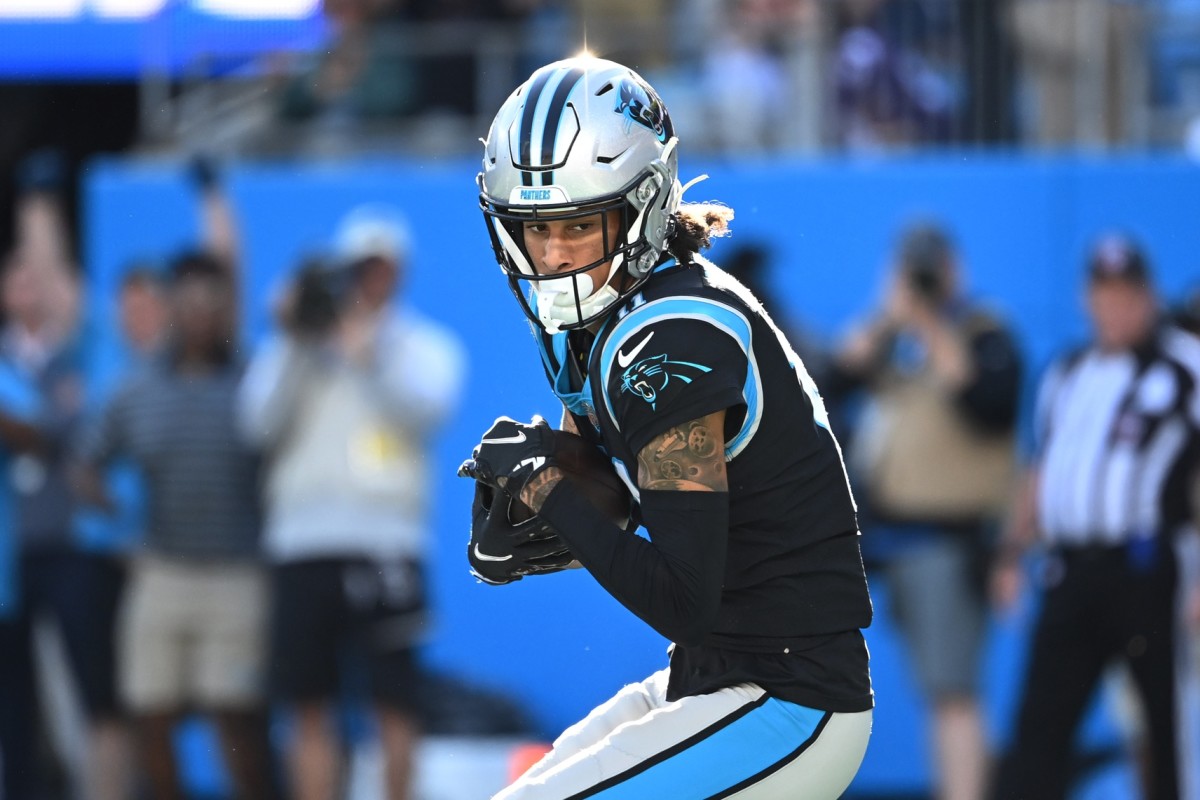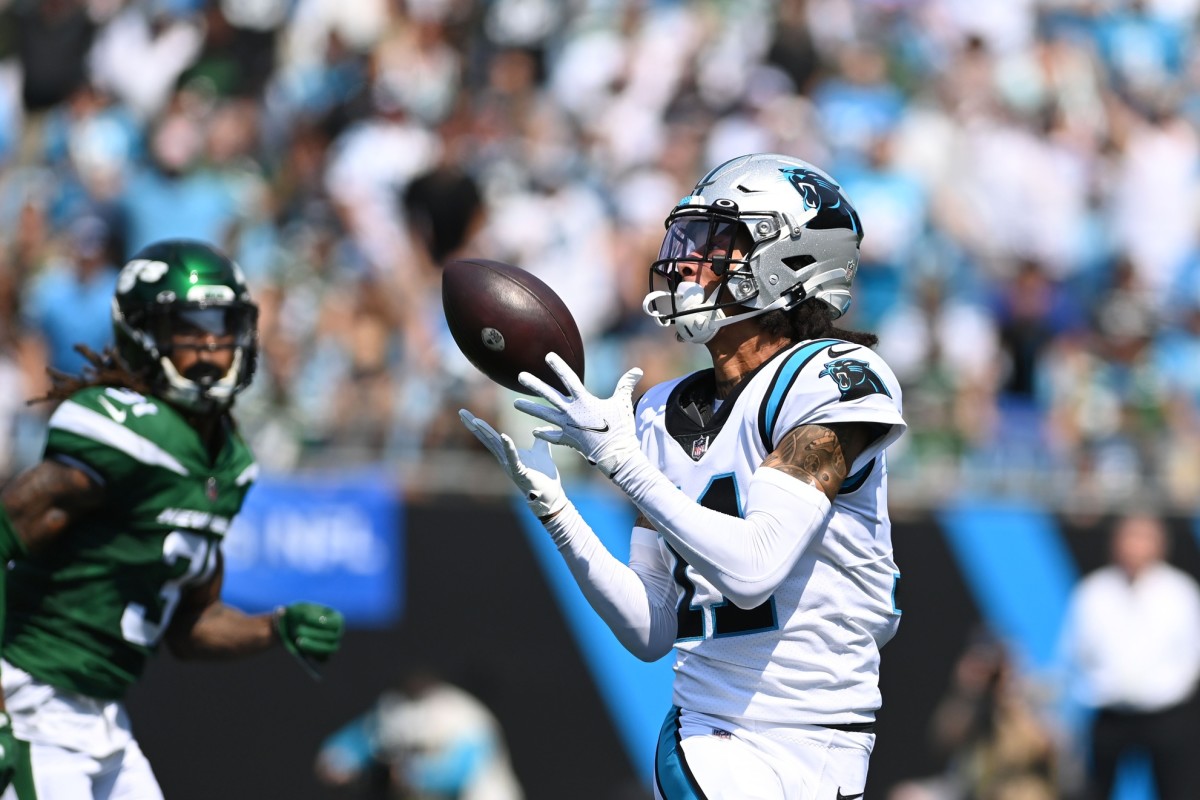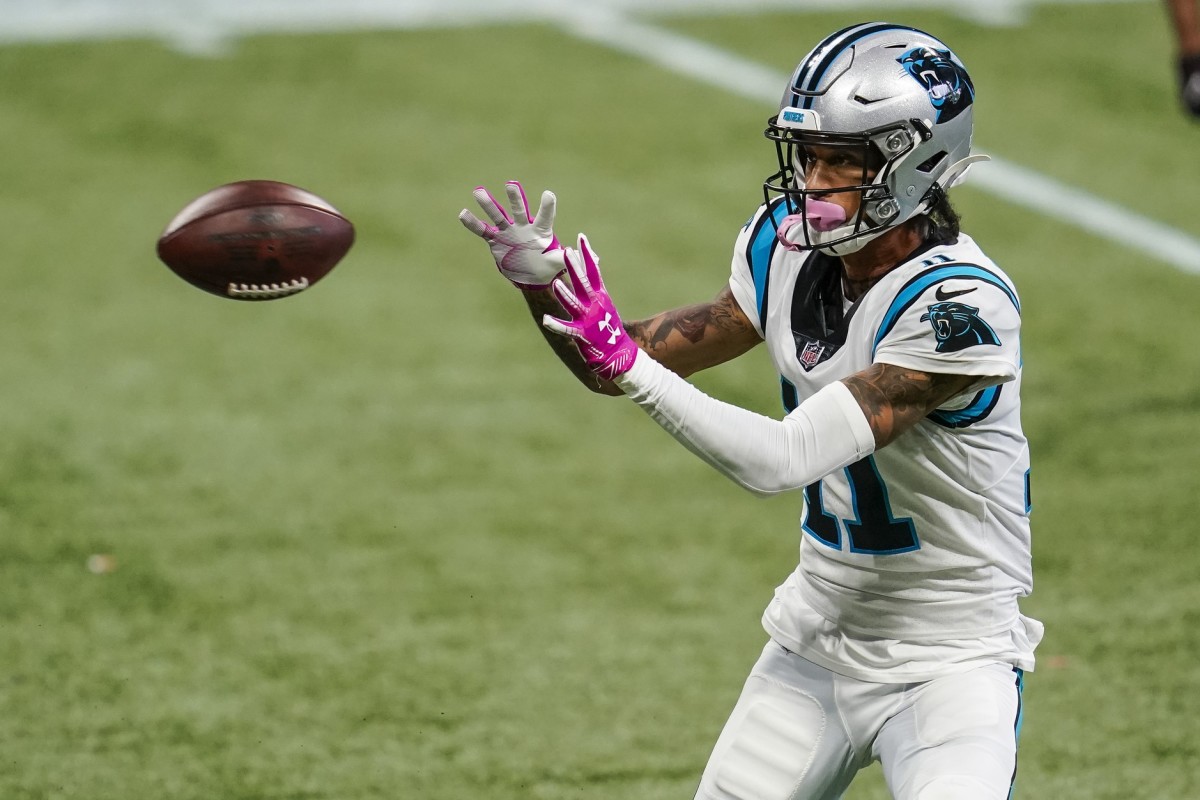Three Reasons Why the Jets Should Not Trade for Robby Anderson
Former Jet and current Carolina Panther wide receiver Robbie Anderson made some buzz late last week, saying he has “unfinished business” in New York and would prefer a reunion if placed on the trade block this offseason.
Anderson, who will turn 29 this May, spent the first four years of his career in the green and white — amassing 3,059 yards on 207 catches and 20 touchdowns in 62 total games. The Jets let him walk at the end of his rookie deal in 2020, where the Panthers picked up his talents and reunited him with his college head coach Matt Rhule by way of a two-year, $20 million contract.
The former Temple Owl reached new highs in his first year with the Panthers; eclipsing 1,000 yards for the first time in his career and hauling in 95 of his 136 targets. He earned himself a contract extension, elevating his 2021 pay to $12 million and tacking on two more years for a combined $25 million. After years of showing flashes with the Jets, it seemed as though the receiver had found a better fit in Carolina and made a long-term commitment to the new organization.
All that seemed to change, however, when a frustrating season for the Panthers essentially cut Anderson’s numbers in half: his catches dropped from 95 to 53, his yards dipped from 1,096 to 519 and his average yards per target went from 8.1 to 4.7. While the offense struggled as a whole, no one seemed to take a step back quite like Anderson had. With the Panthers in dire need to shuffle the deck this offseason, their 6-foot-3 deep threat could possibly be on the trade block.
Make no mistake, this would be a puzzling move by Jets management and a step in the wrong direction as they try to build around this new and exciting offense. The heart might remember him fondly, but there are several reasons why the Jets should stay clear of acquiring his talents.
Why the New York Jets Shouldn't Trade For WR Robby Anderson
Robby Anderson is reportedly interested in a reunion if he's traded this offseason. Here are three reasons why the Jets should not bring this wideout back to New York.
Two Wrongs Don’t Make a Right

General manager Joe Douglas voiced his regret in letting Anderson leave in the middle of the 2020 season, saying “we would all love to see Robby here doing what he’s doing, and I tip my hat to the success he has, but obviously we don’t want to be in the business of losing players.”
It’s hard to not feel that way when Anderson had roughly the same amount of receiving yards as the Jets top two targets (Jamison Crowder and Breshad Perriman) combined, but I’d have to guess that sentiment has changed over the last 15 months. Since his first season in Carolina he’s received a pay raise and followed it up by a letdown season. While it’s hard to argue anyone would’ve had success catching balls from anyone in their quarterback room, he still received less attention from defenders than his time in New York — thanks to stud wideout DJ Moore — and he was reunited with his old quarterback Sam Darnold for 12 of their games last season.
The trade value might not be overwhelming for bringing in Anderson, but any compensation for a wideout who had a 53% catch rate set to make $13 million in 2022 is a stayaway in my book. Bringing a familiar face back, especially one who seems to want a return, is always an emotional decision; but the value needs to be right. Anderson, to me, is not a $13 million man and there are several options in free agency or the trade market that make more sense at a cheaper price.
Douglas may regret letting Anderson walk freely two offseasons ago, but trying to correct that mistake by doubling down and surrendering assets to then have an overpaid wide receiver back in New York would only make things worse in the long run.
Robby Anderson was not happy with Sam Darnold 😬
— PFF (@PFF) November 7, 2021
pic.twitter.com/SPq3E08Kkp
Advanced Metrics Are No Friend of Mine

A lot of Anderson’s dip in production can be blamed on the quarterback mess that was the 2021 Carolina Panthers, but the individual measurements show it was more of a two-way street than you’d think.
His receiving grade of 59.3 by PFF was the lowest since his rookie season (56.4) and was a significant drop-off from his 76.0 grade from 2020. His yards after contact per reception was down all the way to 0.6, from 1.4 the year prior, and his yards after catch per reception went from 5.2 in 2020 to 3.0 in 2021.
Anderson also dropped 11.11% of his catchable balls thrown this year, nearly double his 6.8% the season before. His quarterback’s rating when targeting him was a 50.5, one of the league’s worst among qualified targets, a number that sat at 95.1 with the 2020 crew.
There is no doubt the change from Teddy Bridgewater to the trio of Sam Darnold/Cam Newton/Philip Walker played a role in this down season, but this dip in productivity is just as bad when comparing it to his tenure with the Jets. Every advanced stat mentioned was a career-low for Anderson, with the exception that a quarterback’s rating when targeting a receiver wasn’t measured until the 2018 season.
Again, considering there would need to be compensation given away to bring in Anderson and an upcoming salary of $13 million attached, this just isn’t the right time given his trend downward.
This Is No Longer an Offense That Best Fits His Skillset

The current Mike LaFleur offense is quite different from any that were run by John Morton/Jeremy Bates/Dowell Loggains in prior Jets eras, and one that asks for a lot out of their wide receivers.
Being a physical run-blocker is an important key, especially for the larger wideouts on the roster. Be as unsure of Corey Davis’ first season as you want, but he had the sixth-best run block grade by a receiver in all of football last year. Anderson was outside the top 50.
Route running has never been a forte to his game, something very important for an offense that exploits the full route tree, and his YAC — 143rd in the league last season — isn’t an ideal match either.
Not only do the schematics not pair well, but the fit alongside the other receivers in the locker room would give me pause as well. The Jets had the fifth-most drops in the league last year, and Anderson had more drops than anyone else currently on the roster. While there are certain elements to his game that could make the Jets a hair more versatile, the cons outweigh the pros when it all boils down.
The wide receiver position is becoming one of the deepest groups in football when it comes to overall talent. While the nostalgia over a former Jet that actually enjoyed his time in New York is emotionally appealing, now is not the time to be swooning over the past. With plenty of options in free agency and another deep set of wideouts in the upcoming draft, giving away assets to overpay a receiver fresh off his career-worst season would be a big step back.
MORE:
- Ex-Jets Scout Not Sold On David Ojabo Getting to the QB in the NFL
- Evaluating Zach Wilson, Week 1: Welcome to the NFL
- Should the Jets Break the Bank For Free Agent LT Orlando Brown Jr.?
Follow Blake Pace on Twitter (@BlakeAndrewPace). Be sure to bookmark Jets Country and check back daily for news, analysis and more.
